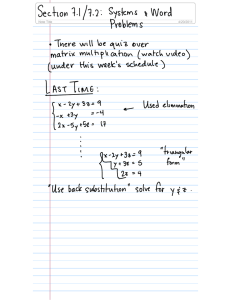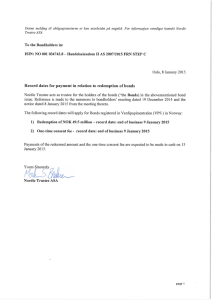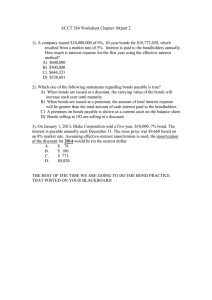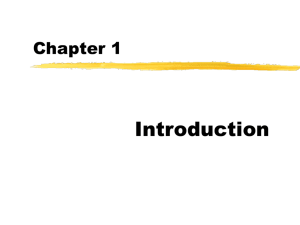Handout 4-2 Legislative Brief Date:
advertisement
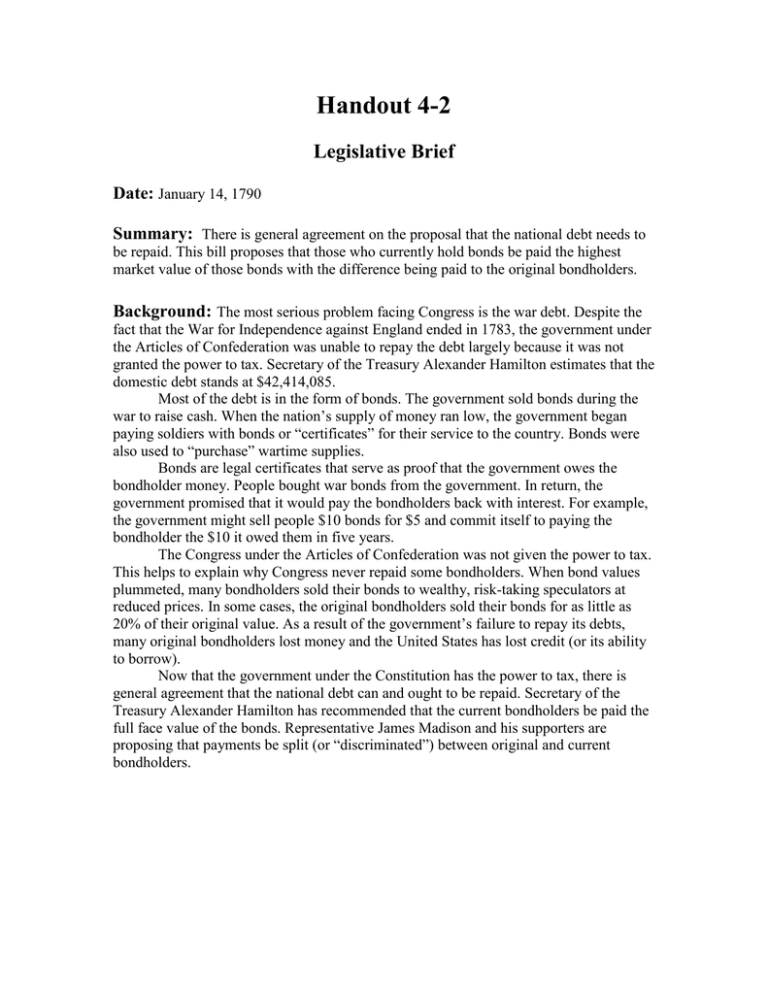
Handout 4-2 Legislative Brief Date: January 14, 1790 Summary: There is general agreement on the proposal that the national debt needs to be repaid. This bill proposes that those who currently hold bonds be paid the highest market value of those bonds with the difference being paid to the original bondholders. Background: The most serious problem facing Congress is the war debt. Despite the fact that the War for Independence against England ended in 1783, the government under the Articles of Confederation was unable to repay the debt largely because it was not granted the power to tax. Secretary of the Treasury Alexander Hamilton estimates that the domestic debt stands at $42,414,085. Most of the debt is in the form of bonds. The government sold bonds during the war to raise cash. When the nation’s supply of money ran low, the government began paying soldiers with bonds or “certificates” for their service to the country. Bonds were also used to “purchase” wartime supplies. Bonds are legal certificates that serve as proof that the government owes the bondholder money. People bought war bonds from the government. In return, the government promised that it would pay the bondholders back with interest. For example, the government might sell people $10 bonds for $5 and commit itself to paying the bondholder the $10 it owed them in five years. The Congress under the Articles of Confederation was not given the power to tax. This helps to explain why Congress never repaid some bondholders. When bond values plummeted, many bondholders sold their bonds to wealthy, risk-taking speculators at reduced prices. In some cases, the original bondholders sold their bonds for as little as 20% of their original value. As a result of the government’s failure to repay its debts, many original bondholders lost money and the United States has lost credit (or its ability to borrow). Now that the government under the Constitution has the power to tax, there is general agreement that the national debt can and ought to be repaid. Secretary of the Treasury Alexander Hamilton has recommended that the current bondholders be paid the full face value of the bonds. Representative James Madison and his supporters are proposing that payments be split (or “discriminated”) between original and current bondholders.

